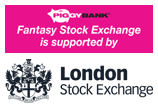|
A | B | C | D | E | F | G | H | I | J | K | L | M | N | O | P | Q | R | S | T | U | V | W | X | Y | Z
Glossary of Terms
A
AER: Annual Equivalent Rate. The interest calculated under the assumption that interest is paid and compounded per year. This means interest is added to your original balance so you have a higher starting amount each time.
AIM: A London based Stock Exchange for smaller and growing companies. AIM stands for “Alternative Investment Market”.
Asset: Any item of economic or financial value owned by someone or a company. Examples are cash, money in bank accounts, investments, real estate like a house, a car, and other property.
Acquisition: A term used to describe the takeover or buying of a company by another. Also called a “takeover”. An acquisition is done by purchasing the shares of the target company. Sometimes these takeovers are friendly (by agreement) or hostile (the target doesn’t want to be taken over!). The City Code on Takeovers governs how acquisitions of listed companies (companies on the stock exchange) should be made.
Assets: Things you own which have financial value, like a house or a car.
back to top
B
Balance sheet: An overview of a company’s assets (what it owns) and liabilities (what it owes) at the end of a financial year.
Bear: An investor who believes that share prices (the Market) will go down. So he/she sells, hoping to buy them back at a lower price later on. A Bear market is a market which is going down.
Bonds: A bond is a certificate issued by a company which oblige it to pay certain sums at certain times to the holder of the bond (a bit like a cheque). So, when someone buys a company’s bond, he or she is effectively lending that company money. The seller of the bond (the company) agrees to repay the loan at a specified time and at a specified rate of interest.
Bricks & Mortar: A term usually referring to houses and property, but sometimes used when describing more traditional businesses and not those associated with, say, telecoms or hi-tech businesses.
Bull: An opposite of a bear. An investor who believes the market will go up will buy shares in the hope of selling them at a higher price later. A bull market is one that is rising.
Broker: An agent who handles orders to buy and sell from its investors or clients. Brokers often charge a commission for the work they perform “the trade”. Brokers are often a member of the London Stock Exchange and regulated by the Financial Services Authority (FSA).
back to top
C
Capital: Cash and assets used to generate income after investing. Sometimes capital is simply the combined value of assets.
Capital appreciation: This is when the market value of the shares (assets) is greater than the price they were bought for.
Capital Gains Tax (CGT): When a person sells his/her shares (assets) and has made money he/she is required to pay a tax on the profit.
City Bonus: City bonuses are sums of money paid to executives, normally associated with being brokers, bankers, fund managers and traders of shares or commodities. The bonus is a special reward for doing extra well and earning more than expected for their companies. It’s paid on top of the normal salary. It’s a bit like getting cash in your Christmas card.
Commission: A commission is normally a payment made to someone when they sell something for another person or a company. For example, if you work at a shoe shop and sell a pair of shoes worth £20, you might be given a £2 commission for completing that sale.
Commodities: A commodity is a basic raw material such as wheat, rice, sugar, coffee, copper or gold. The values of these are changing constantly and people make a lot of money by buying commodities when they’re cheaper, and selling them when they’re more expensive.
Consortium: A group of people, companies or banking institutions that club together for a common purpose. They usually do this because when the amount they have to invest is so large, it’s better to divide it up & and spread the risk!
Correction: A quick reverse movement in the price of stocks and shares, or the stock market as a whole. It’s like a little adjustment before it continues its movement and often happens when prices are too low or too high.
Credit: Amount of money loaned, normally by a bank to its customer. Shops sometimes offer their customers credit.
Credit Agreement: An agreement to repay a credit loan.
Currency: Cash, cheques etc. which circulate in an economy as an accepted means of exchange e.g. Pound, Dollar, euro.
back to top
D
Daily change: Difference between the most recent price of a share and the Closing price.
Daily high: Highest price reached by a given share or share index (like the FTSE) during a given day.
Daily low: Lowest price reached by a given share or share index (like the FTSE) during a given day.
Deposit: A deposit is a sum of your money usually paid into a bank. When you deposit money into a bank savings account you are giving the bank your money to look after. In return, they pay you interest.
Depositors: Those who have deposited or put money into savings accounts or other accounts at banks, building societies or financial institutions - any account holder with money in the bank.
Dividend: When a company makes profits, it gives a proportion of it back to the shareholders.
back to top
E
Equity: A general term for different types of shares. The risk-sharing (they can go up or down) part of a company’s capital.
Eurobonds: Bonds that have been issued in one country’s currency but traded outside of that country. Eurobonds are named after the currency they denominate. Examples are the Euro-yen or Euro-dollar bonds, trading respectively in the Japanese Yen and the US Dollar. They work in the same way as bonds (see above).
back to top
F
Financial Services Authority (FSA): An independent body which regulates the financial services industry in the UK.
Financier: A group of people, companies or banking institutions that club together for a common purpose. They usually do this because when the amount they have to invest is so large, it’s better to divide it up & and spread the risk!
Foreign Equity: Stocks and shares of foreign companies being traded in London.
Foreign Exchange Market: Like a stock exchange but one where people buy and sell foreign currencies - like US dollars, Japanese Yen and the euro.
Fund: A collective investment scheme where money is combined and invested in a portfolio of shares with a common investment purpose.
Fund manager: A person who decides how and where the fund money is invested.
back to top
G
Gross: Total amount before deductions like taxes. For example Gross Income is the income before taxes.
back to top
H
Hedge Fund: Not something you find in the garden! This is a specialist, high risk fund which uses advanced investment financial techniques in order to make maximum gains. Not a simple way to invest.
HM Treasury: Her Majesty’s Treasury. The government department responsible for the country’s taxes, finance and economy.
back to top
I
Index: A statistical measure of the changes in a selection of stocks representing a portion of the overall market. For example the FTSE 100 and the S&P500 are indices.
Interest: Interest is the money banks will pay you for keeping your money. It is also what the banks will charge you for lending you money. Generally, interest is expressed as a percentage over a period of time, like 5% per annum. In this case, the borrower will pay 5% of the amount of money borrowed each year, on top of the total amount borrowed. Bank interest is higher to borrow than to deposit.
back to top
J
back to top
K
back to top
L
LSE: The London Stock Exchange
Liability: An obligation that legally binds an individual or company to settle a debt or a payment.
Limited company: A privately owned company with less than 50 shareholders which has limited liability.
Limited liability: When the liability of the shareholders is limited to the nominal value of their shares, it is called limited liability.
back to top
M
Market price: Price of a share as quoted on the exchange.
Money Mints: Companies, printers, other institutions and those with special permission to manufacture notes and coins. (Like The Royal Mint and the Bank of England.)
Mortgages: Money borrowed from a bank or a building society in order to purchase property - a house, for instance. Under the Mortgage Agreement, the borrower agrees to make a series of payments back to the Lender. The money lent by the bank is secured against the value of the property, which means if the payments are not made by the Borrower, the Lender can take back the property.
back to top
N
Nationalise: Take the business from being a private company (or PLC) to government ownership. The opposite of Privatisation.
NYSE: New York Stock Exchange (NYSE), the world’s largest stock exchange.
back to top
O
Ordinary shares: Most common form of share. Holders may receive dividends if the company is profitable.
back to top
P
Pension fund: A fund set up by a company or government to invest the pension contributions of members and employees. They are paid out at retirement age.
PLC: Stands for Public Limited Company. Normally, a company whose shares can be owned by the general public and are usually bought and sold, through a regulated stock exchange such as the London Stock Exchange.
Portfolio: A selection of investments.
Preference shares: Ranked above ordinary shares. The “Preference” shareholders have the right to receive dividends before ordinary shareholders and for the repayment of their investment in the company.
Private company: Not a public company and one which is not allowed to offer its shares for sale to the general public.
Profit: A profit is the difference between the price you pay for something and the amount you sell it for.
back to top
Q
back to top
R
Recovery: When the financial markets and/or the economy (could be globally or just nationally) starts pulling through after a recession or a downturn.
Risk: The likelihood or the probability that the actual return (money made) of an investment will be different from what was expected. The higher the risk, the higher will be the probability of gain or loss on the investment.
Rule Book: The rules of the London Stock Exchange.
back to top
S
Securities: General name for stocks and shares of all types.
Shareholders: Quite simply those who own the shares of the company. Essentially, they are the owners of the company.
back to top
T
Tracker fund: A fund that tries to mirror the performance of a chosen share index.
Trader fund: Actually does the buying and selling of stocks and shares. A trader can be doing the trades for him or her self, or on behalf of banks.
back to top
U
back to top
V
back to top
W
back to top
X
back to top
Y
back to top
Z
back to top
|












